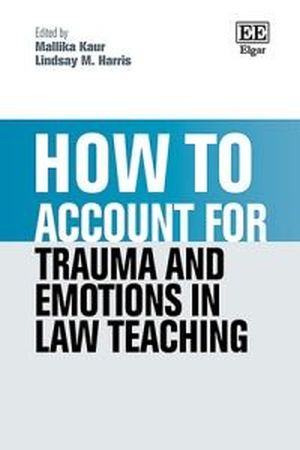
Subverting the narrative that the legal profession must be austere and controlled, this prescient 'How To' guide addresses the crucial need for holistic, trauma-centred law teaching. It advocates for a healthier, more inclusive profession by identifying strategies to engage, and even encourage, emotions within legal education.
Proponents of trauma-centred pedagogy, co-editors Mallika Kaur and Lindsay M. Harris bring together a diverse set of legal academics from a range of subject areas to examine the need for trauma-centred pedagogy. Diverse subject matter experts, clinical and non-clinical, critically analyse a multitude of educational techniques within the law classroom, including the use of violent imagery, simulation, and the Socratic method. Chapters explore pedagogical methods that consider the emotional responses of the professor and student, advocating for more attentive and sensitive methods of teaching law. Courses which address stereotypically emotive topics such as domestic violence law are considered along with courses usually deemed non-emotional such as civil procedure.
How to Account for Trauma and Emotions in Law Teaching is a vital reference point for legal educators who aim to create meaningful spaces for engagement within legal training. Ultimately, it proves a thought-provoking read for lawyers and law students, as well as trauma professionals and those working with the legal system.